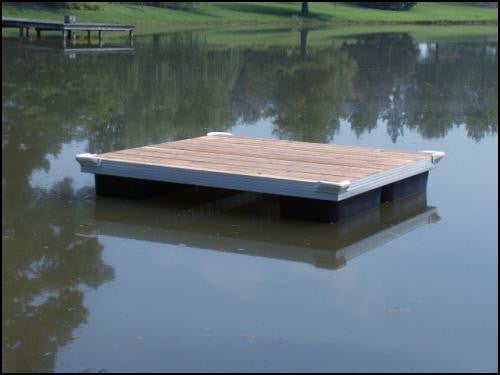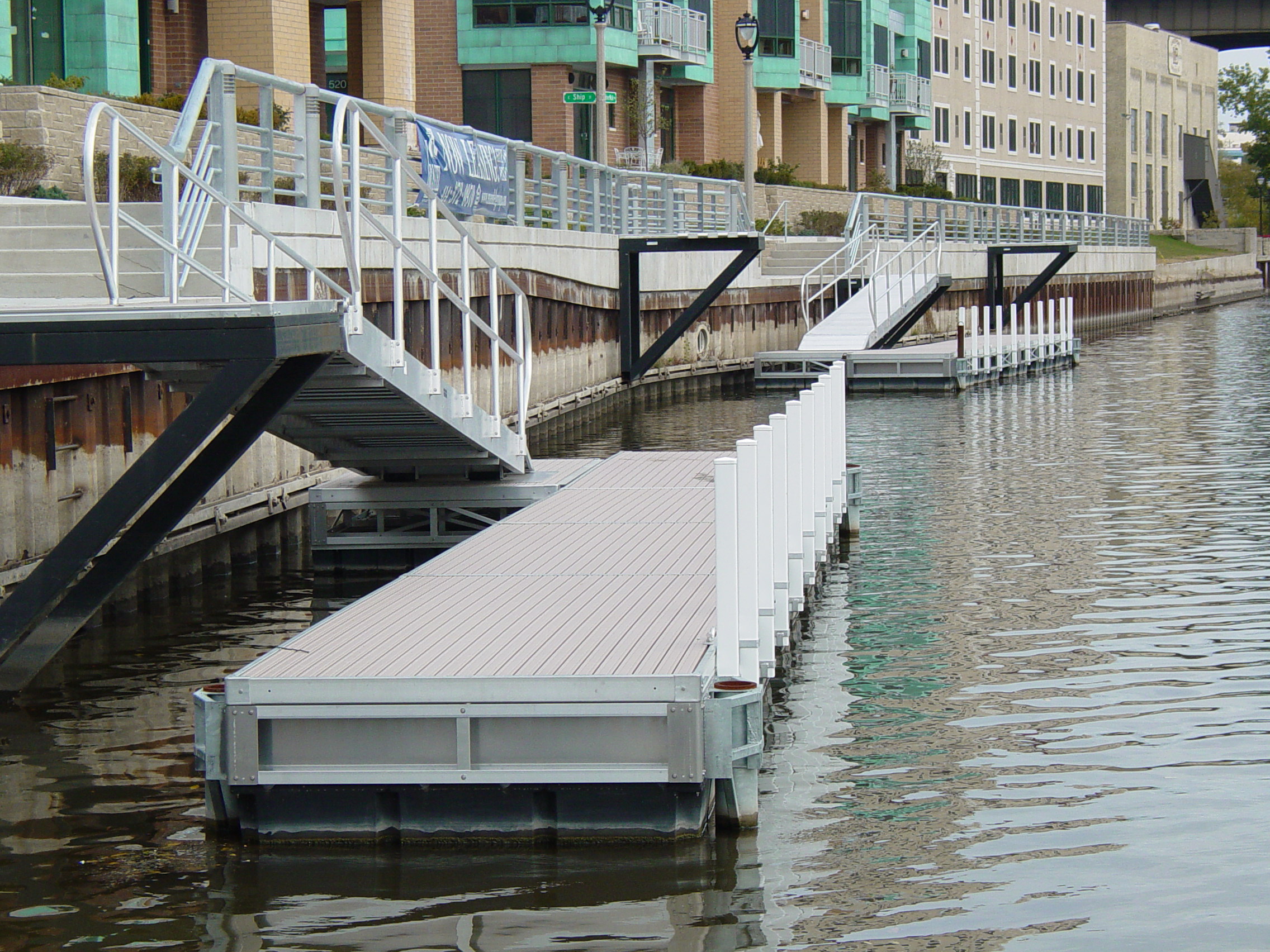Cutting-edge Floating Docks: The Future of Waterfront Access and Entertainment
Cutting-edge Floating Docks: The Future of Waterfront Access and Entertainment
Blog Article
Floating Docks: The Ideal Option for Versatile Water Accessibility
Floating docks existing an engaging option for a selection of water accessibility requires, offering adaptability that goes beyond typical mooring choices. The modular nature of floating docks promotes modification, providing to particular requirements.
Advantages of Floating Docks
Floating docks offer numerous benefits that enhance water access for numerous applications. Their capability to fluctuate with transforming water levels makes them particularly useful in atmospheres with fluctuating tides or seasonal variants. This adaptability makes certain that vessels can quickly moor without worry for the water's depth, giving a trusted platform for entertainment, industrial, and commercial uses.
Additionally, floating docks are frequently constructed from durable materials that stand up to deterioration, making them ideal for long-term usage in aquatic environments. Their setup is commonly less invasive than standard set docks, decreasing the ecological influence and facilitating quicker implementation (dock company). This flexibility enables much easier moving or reconfiguration according to customer needs or environmental modifications
Safety and security is an additional vital advantage; floating docks can supply stable access for individuals boarding or disembarking from watercrafts and lower the threat of accidents related to unstable surface areas. They can be created to fit a variety of devices, such as fenders and cleats, boosting capability. Generally, floating docks stand for an efficient service for improving water access across varied markets while promoting safety and security and ecological sustainability.

Kinds Of Floating Docks
Numerous sorts of floating docks accommodate different requirements and environments, each made with details functions to maximize performance. One of the most typical kinds consist of modular docks, which contain interlocking sections that enable very easy personalization and development. These docks are ideal for leisure usage, as they can be customized to fit various boat dimensions and water problems.
One more preferred option is the stationary floating dock, which remains anchored in position however drifts with changing water levels. floating docks. This type is especially fit for locations with marginal tidal fluctuations, giving secure access for fishing or swimming. Furthermore, there are drive-on docks, which include a sloped design that permits boats to quickly drive on and off, making them ideal for personal watercraft and smaller vessels
For industrial applications, durable floating docks are readily available, created from enhanced products to withstand significant loads and harsh marine settings. Environment-friendly floating docks make use of lasting materials and designs to minimize ecological influence, commonly integrating features like vegetation to sustain regional wildlife. Understanding the numerous kinds of floating docks makes sure that individuals can select one of the most proper service for their specific needs.
Setup Process Review
A successful installation of floating docks calls for cautious preparation and interest to detail to make sure optimal efficiency and security. The first step involves examining the site problems, including water deepness, current, and potential obstacles. This analysis informs the option of the suitable dock products and design customized to the specific atmosphere.
Next, acquiring necessary licenses is critical, as lots of territories have regulations pertaining to building and construction on water bodies. The setup can proceed as soon as consents are safeguarded. Begin by preparing the foundation, which may include anchoring systems or pilings customized to the dock type and regional problems.
Adhering to the foundation configuration, construct the dock sections according to producer requirements. Ensure that all components are safely attached and straightened to withstand environmental check out here anxieties. Placement the dock in the designated area, ensuring it is degree and secure.

Maintenance Tips and Ideal Practices
After the installation procedure is total, recurring upkeep plays an essential function in making certain the longevity and functionality of floating docks. Routine examinations should be conducted to identify any kind of indicators of deterioration, damages, or wear - floating dock services. Inspect for any loosened fittings, splits, or separation in the dock areas, as these can jeopardize structural stability
Cleaning the dock is necessary to eliminate debris, algae, and various other build-up that can impact its look and safety and security. Utilize a mild pressure laundry periodically to preserve cleanliness without triggering damage to the surface. In addition, applying a safety sealer every few years can assist enhance durability and stand up to environmental wear.
Take note of the mooring lines and anchors, guaranteeing they are free and safe from rust. Replace any type of degraded elements promptly to prevent threats. Seasonal adjustments may additionally be necessary; during severe weather, strengthening the dock or rearranging can prevent damage.
Applications for Floating Docks
Floating docks offer click here now a multitude of applications, satisfying both commercial and recreational requirements. In leisure setups, they give smooth access to waterways for activities such as boating, fishing, and swimming. Their adjustable nature permits setup in differing water degrees, making certain stable and risk-free gain access to no matter tidal fluctuations.
Commercially, floating docks are essential for marinas and waterside services. They promote the docking of vessels, enabling reliable discharging and filling of goods. Their modular layout enables very easy expansion or reconfiguration to accommodate transforming organization demands, making them excellent for watercraft services, excursion operations, or angling charters.
Furthermore, floating docks are used in ecological applications such as marine research and environment repair. They can work as platforms for clinical research studies, monitoring water quality, redirected here or carrying out wildlife studies without troubling delicate environments.
In industrial contexts, floating docks are utilized in construction tasks, giving access to hard-to-reach locations for devices and personnel. Their versatility, sturdiness, and marginal effect on the environment make them an optimum option for a vast array of applications, improving both functionality and access in different water-based environments.
Verdict
Finally, floating docks represent an optimum service for varied water gain access to needs, owing to their versatility, resilience, and modular layout. These structures promote risk-free mooring for numerous applications while reducing ecological impact during setup. The reduced maintenance needs even more boost their practicality. Floating docks serve as a useful property for recreational, industrial, and ecological tasks, ensuring trustworthy accessibility to waterways and promoting sustainable methods in marine environments.
Floating docks existing an engaging option for a range of water access requires, offering flexibility that transcends conventional mooring choices.Floating docks offer numerous benefits that boost water accessibility for numerous applications. Generally, floating docks represent an effective remedy for boosting water accessibility throughout diverse industries while promoting safety and security and ecological sustainability.
One more prominent option is the stationary floating dock, which stays anchored in place yet drifts with transforming water degrees.In conclusion, floating docks represent an optimal remedy for varied water access requires, owing to their flexibility, longevity, and modular style.
Report this page